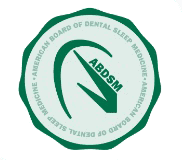Frequently Asked Questions
FAQ
Question: What options are available for treating my snoring or sleep apnea?
Answer: Medical and dental treatment options for snoring and sleep apnea include: positional devices, CPAP, oral appliance therapy, and surgery.
Question: How does the appliance work to help manage snoring/sleep apnea?
Answer: An oral appliance is a small plastic device that fits over the upper and lower teeth, similar to an orthodontic retainer or mouth guard. The appliance is worn in the mouth during sleep to prevent the soft tissues of the airway from collapsing and obstructing the airway. Oral appliances work by slightly advancing the lower jaw which in turn moves the base of the tongue forward and opens the airway to allow improved breathing and reduced snoring and apnea during sleep.
Question: How effective is the appliance?
Answer: If the problem is snoring only, the appliance is effective in approximately 85-90% of patients. When treating obstructive sleep apnea, the appliance is 60-80% effective, depending on the severity of the apnea. The appliance tends to be more effective for mild to moderate obstructive sleep apnea, although we have had success treating cases of severe apnea.
Question: How do you confirm the effectiveness of the oral appliance?
Answer: Patients with moderate or severe sleep apnea must have a follow-up sleep study while using the oral appliance to confirm the effectiveness of the device. During the follow-up sleep study, the jaw position on the appliance can be adjusted to increase treatment success. Following the sleep study, a consultation with the sleep medicine physician will be necessary to discuss the results.
Question: How long do the appliances last?
Answer: Under normal circumstances, the appliances generally last 2-5 years, but many will last much longer than 5 years.
Question: How much does treatment with an appliance cost?
Answer: Since each patient’s situation is unique, the treatment with an appliance varies based on the type of appliance prescribed. The fee ranges from $2,350 to $4,700, and includes the initial examination and consultation, a custom-fit appliance, all necessary scans, and all follow-up visits.
Question: Does my insurance cover appliance treatment?
Answer: Since insurance plans vary widely, we work with all our patients to help them obtain the maximum reimbursement from their insurance carrier allowed by their plan. Most insurance companies have coverage for treatment of obstructive sleep apnea with an oral appliance. Insurance companies generally do not cover treatment for snoring only.
Most dental insurance companies do not cover treatment of obstructive sleep apnea. We encourage you to call and check with your medical insurance company. We will be happy to send information to your insurance company regarding your situation to request a determination of benefits.
Question: How many visits are required?
Answer: After the initial consultation, there may be 3-4 appointments within the first six months. Thereafter, you will be placed on an annual or semi-annual recall.
Question: How long does it take to adapt to the appliance? Will it hurt my teeth?
Answer: 95% of patients will adapt to the appliance within 2-7 days. It will take a few days to adapt to having a device in your mouth during sleep. The appliance will not hurt the teeth. If your teeth are sore after initial use, we can easily adjust it for your comfort.
Question: What is fluoride and why is it important to dental health?
Answer: The tooth material is by essence porous. Fluoride neutralize the acid from the bacteria in your mouth that causes decay.
Question: What are cavity-fighting sealants?
Answer: Sealants prevent the bacteria from settling in and secreting acid that causes decay.
Question: What are the dangers of oral piercings?
Answer: They can cause infection because they collect bacteria. People inadvertently end up biting on the piercing which is like biting on a rock.
Question: I knocked out a tooth, can it be saved?
Answer: Always saves what falls out of your mouth because it could possibly be reused.
Question: What causes morning breath?
Answer: Bad breath happens when the naturally occurring bacteria in our mouths break down the food particles that are lingering in between our teeth, along our gum lines, and, especially, on our tongue. It is more formally called halitosis. It is temporary and is caused by poor brushing and flossing habits.
Question: Why should I go to BCOH regularly?
Answer: You want to prevent, maintain and improve your oral health. You may not be aware of minor problems that are developing. It is detecting minor issues before they become major problems.
Question: Why should I floss, isn't brushing enough?
Answer: Flossing contributes to good dental hygiene because it lifts and removes plaque between your teeth. The bristles of a toothbrush are not able to reach deep enough to get to all of the buildup. Therefore flossing helps you keep your mouth as clean as possible.
Question: How can I get my kids to brush their teeth?
Answer: Children thrive on routine. Developing regular oral habits and establishing oral health care as part of a bed time routine is essential.
Question: How can I prevent cavities?
Answer: Reducing the exposure to simple carbohydrate like sugar. Avoiding sticky food like caramel, raisins, date, etc.. Seeing BCOH for regular oral health care.
Question: Why do the dentist take X-Rays
Answer: Because you can’t visually see decay with a naked eye. Decay happens between the teeth.





We are proud of our accomplishment in obtaining the Diplomat status. Diplomat status is a commitment to an excellent patient experience. It is important to BCOH to treat each patient to the highest of standards of the ABDSM. Because of those standards, the ABDSM is highly regarded in the dental sleep medicine global community.

In teaching tomorrow’s dentists we continue to enhance our care skills and judgment for today. We are faculty appointments of the world leading universities of dental Medicine.
